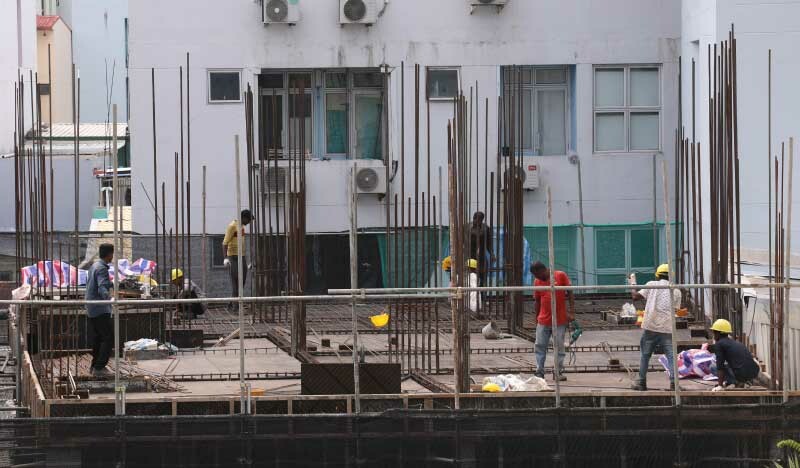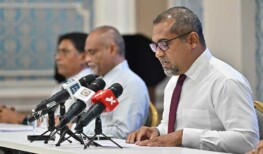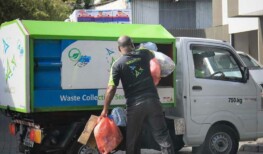Migrant Workers: Forbidden to Protest But Not Forgotten

Photo: MV+
Yesterday, Worker’s rights organisations and workers took to the streets of Male to raise their voices on labour rights issues faced by workers in Maldives. They highlighted issues of unpaid overtime wages, overworking among resort workers and lack of childcare for healthcare workers.
Yet, amidst the rallying cries for rights, a noticeable absence loomed large – migrant workers, constituting a significant portion of the workforce, remained conspicuously absent from the protests, unable to voice their grievances in unison with fellow workers, even as they face the brunt of labour rights violations by employers in the Maldives.
With over 130,000 migrant workers contributing to the Maldivian labour force, they form the backbone of key industries such as construction and tourism. From serving in eateries to toiling on fishing vessels, farming, and providing various services, their indispensable role in driving the economy cannot be overstated.
The Ministry of Homeland Security and Technology recently initiated a project to document all migrant workers living in Maldives by collecting photos and fingerprints of all migrant workers living in all islands of Maldives.
The project, named Operation Kurengi, has been touted as a way to address the problem of undocumented migrant workers. However, concerns persist regarding its effectiveness in addressing the root causes of labour exploitation or whether it exacerbates the marginalization of vulnerable groups, largely victimized by exploitative employment practices.
The US State Department in its 2022 Trafficking in Persons Report described how migrant workers in Maldives are subjected to practices indicative of forced labour, including fraudulent recruitment, confiscation of identity and travel documents, withholding or non-payment of wages and debt-based coercion.
According to the report, recruitment agents in source countries collude with employers and agents in Maldives to facilitate fraudulent recruitment and forced labour of migrants.
The government says that withholding of passports and non-payment or underpayment of wages to migrant workers remain the most common trafficking indicators in Maldives.
There are multiple media reports every year with harrowing descriptions of what migrant workers are subjected to in Maldives, the sunny side of life.
However, this stark reality is not reflected in legal measures taken to curb human trafficking and hold those responsible to account. In 2023, there were no convictions on human trafficking charges and no person was charged with human trafficking according to statistics from the prosecutor general’s office.
Only 6 hearings related to human trafficking charges were scheduled at a court in Maldives.
As authorities intensify efforts to address undocumented labour, it is imperative that equal attention is directed towards combatting human trafficking and ensuring justice for all victims, regardless of their immigration status.







